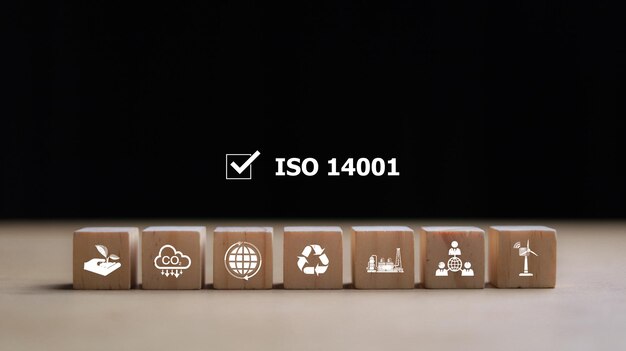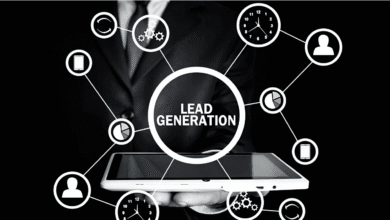ISO 14001 Certification: Why Environmental Responsibility Isn’t Just Nice—It’s Necessary

So, what’s the real deal with ISO 14001?
You know how some companies slap a green logo on their packaging and call it a day? Yeah, ISO 14001 isn’t that. It’s the international standard for environmental management systems (EMS), and it actually means something. Getting certified says, loud and clear, that your organization is serious about minimizing environmental impact, staying compliant with regulations, and continuously improving how it handles everything from waste to water.
It’s not just about looking good—it’s about doing good and doing it consistently.
Why it matters more than ever
Let’s be honest. Sustainability used to be this optional checkbox. Now? It’s table stakes. Consumers care, investors care, regulators care. And honestly, so should you.
ISO 14001 Certification doesn’t just help you meet legal requirements—it positions you as a forward-thinking, responsible business. It signals that you’re not just talking the talk—you’re measuring, tracking, and walking it out, step by muddy step.
And the bonus? It’s great for your bottom line too. Efficient resource use, reduced waste, fewer environmental incidents—those are all things that save money while doing right by the planet.
Getting under the hood: What ISO 14001 asks of you
Here’s the thing—this isn’t a plug-and-play label. It’s a full-blown system. You’ll need to:
- Map out how your activities impact the environment (think emissions, waste, energy use)
- Create policies and procedures to control or reduce those impacts
- Regularly review and improve your processes
- Involve people at every level of the organization
It’s not just about the paperwork—it’s about mindset, habits, and action.
And yeah, it might sound like a lot. But here’s the kicker: it’s built to be flexible. Whether you’re a five-person startup or a global manufacturer, ISO 14001 can adapt to your size, scope, and sector.
The emotional angle—because yes, it matters
Let’s step away from spreadsheets for a sec. Think about your brand reputation. Your team’s morale. Your kids, even. People want to work for and buy from companies that care. Plain and simple. When you hold ISO 14001 certification, you’re not just following rules—you’re taking responsibility. You’re showing that you understand your part in the bigger picture.
Wait, what about legal compliance?
Great question. The beauty of ISO 14001 certification is that it actually helps you keep pace with changing environmental laws and regulations. It pushes you to stay informed, stay organized, and be prepared. So when regulators come knocking, you won’t be scrambling. You’ll already have the answers.
How it fuels efficiency (and yeah, cuts costs too)
Let’s talk shop. One of the most underrated perks of ISO 14001? Operational efficiency.
By identifying waste, optimizing resource use, and streamlining processes, many companies find themselves saving money in places they didn’t even know were leaking it.
- Less waste means lower disposal costs
- Smarter energy use means lower bills
- Fewer accidents and spills means less downtime
It’s all connected.
Who’s using ISO 14001 already?
You’d be surprised. It’s not just “eco” companies. We’re talking:
- Construction firms wanting to manage dust and waste more responsibly
- Manufacturers keen on reducing water and energy consumption
- Service providers looking to cut back on paper and promote greener practices
Even government organizations and schools are getting in on it.
If they can do it, so can you.
The process: What to expect on the road to certification
Here’s a simple sketch of what the journey looks like:
- Gap Analysis – Where are you now vs. where you need to be?
- System Design – Develop your EMS based on the ISO 14001 framework.
- Implementation – Roll it out. Get everyone on board.
- Internal Audit – Check yourself before the external audit.
- Certification Audit – Time for the official assessment.
- Ongoing Improvement – Certification isn’t the end. It’s the beginning.
Pro tip: Bring in experienced consultants or trainers. They’ll keep you from going in circles.
Tangible benefits that go beyond the environment
Let’s rattle off a few more upsides:
- Boosts stakeholder trust and investor confidence
- Strengthens your brand
- Prepares you for climate-related disclosures
- Makes you more competitive in tenders and bids
- Helps you align with SDGs and ESG reporting frameworks
All from a standard that’s been around for decades and keeps evolving.
Why now? Why not later?
Honestly? Because waiting doesn’t help. Environmental issues aren’t on pause. And neither is legislation. Every delay increases risk.
The sooner you embed environmental management into your operations, the better you can manage that risk—and seize the opportunities that come with doing the right thing.
Besides, you’ll sleep better at night knowing you’re not contributing to the mess.
Wrapping it up—ISO 14001 isn’t just for the green crowd
This is about serious business performance. It’s about being lean, lawful, and liked. ISO 14001 certification gives you structure, credibility, and resilience. It’s not a badge—it’s a framework for responsibility that actually works. So if you’ve been thinking about it? Don’t put it off. Start where you are, use what you have, and build something cleaner, smarter, and more responsible. That’s something worth working toward.




